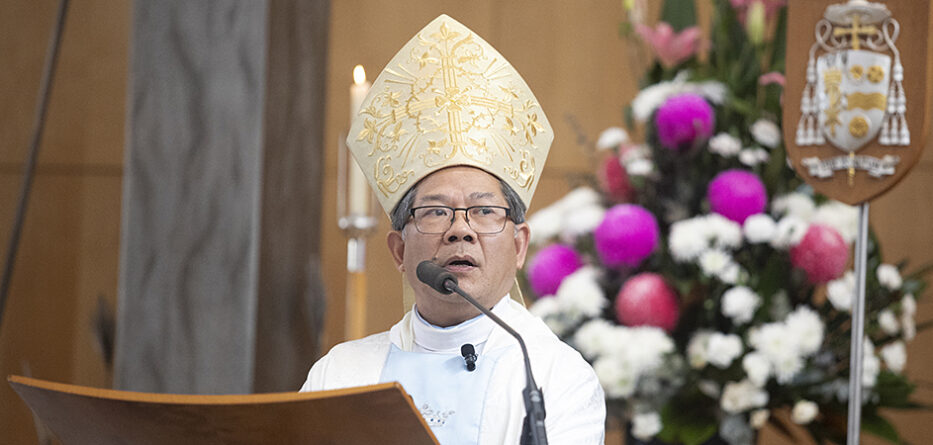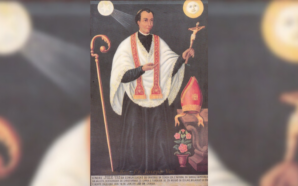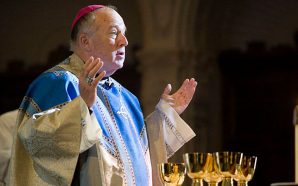Most Reverend Vincent Long Van Nguyen OFM Conv DD STL, Bishop of Parramatta
Homily for Christmas Day, 2024
Readings: Isaiah 52:7-10; Hebrews 1:1-6; John 1:1-18
THE INCARNATION INSPIRES US TO BE COMPANIONS OF THE SUFFERING
Dear brothers and sisters,
We have gathered to celebrate one of most important feasts in our Christian calendar. Amidst all the things that we do: shopping, exchanging gifts, decorating our homes, spending time with our loved ones, hosting lunches and dinners etc.. there is a need for us to reclaim the spirit of Christmas and to engage with the mystery. At the end of the day, Christmas is much more than the sum of all those things. It is much more than what we do for ourselves or for even others. Christmas is primarily about God loving us so much that he made himself one of us and one of the lowliest among us.
This “pitching his tent among us”, as John writes, is the greatest act of risk-taking that God ever made. He could have saved us from a distance. He could have loved us while remaining unapproachable and untouchable. But the Incarnation means that he chose to be with us all the way. St Paul expresses God’s radical solidarity with us through a journey of total self-giving and self-emptying. “Though he was God, Jesus emptied himself, taking on the form of a servant … and accepting death on a cross”. Christmas is about the God who abandoned his own status to show us the depth of his love.
Indeed, God’s Word today is at pains to show us that God comes among us not brandishing his power and status. Rather he chooses to immerse himself fully with our human condition, embracing the trials and tribulations of life rather than in safeguarding his status and privilege. Therefore, reclaiming the Christmas spirit means none other than to imitate God’s radical solidarity even at the risk of jeopardizing our own status and privilege.
In the first reading, the prophet Isaiah proclaims a time of consolation and restoration for his long-suffering people. After years of a painful and harrowing exile, he announces the good news of peace, homecoming and healing of the land and its inhabitants. Isaiah gives us a vision of a God who accompanied the Jewish captives, refashioned them and reconstituted them into the new Israel. The brokenness and the extreme vulnerability of the exile became the venue for the divine refashioning and repurposing. The dispossessed and humiliated people who remained steadfast came to be known as the faithful remnants or the “Anawim”. It is the strength of their faith, endurance and steadfastness that makes God’s restorative vision possible. It is no wonder that the blessed faithful remnants are seen as precursors embodying the spirit of the Humble Suffering Servant.
In the Gospel, John describes the birth of Jesus not only as a model human being for other humans but as the crowning enfleshment of all that exists. The Incarnation is God revealing himself in the flesh of the Christ child that encapsulates the materiality of all creation. Hence, John declares that “all that came to be had life in him” and “He was in the world that had its being through him”. The incarnation is God’s total Yes and unconditional love for us and for all his creatures.
Christmas opens us to the dawn of this new era of God’s justice, love and compassion in Christ. The trickle-down economy that favours the powerful and disadvantages the powerless can no longer hold sway. Christmas beckons us to befriend and accompany the suffering with the new ethic of communion. We are reminded that the whole Judeo-Christian enterprise is pivoted to the imitation of the God who listens to the cry of the poor. Hence a Christianity that does not serve the needy, that does not accompany the excluded, that sidesteps the plight of the marginalised, that gives no hope to the estranged cannot be true to its roots.
Dear brothers and sisters,
At the launch of our Diocesan Plan that followed a year-long journey of synodal listening, discernment and direction-setting, we recommitted ourselves to being the Church that listens to the cry of the poor and the cry of creation. We set ourselves to becoming a community of hospitality, compassion and inclusion, which is an alternative to the populist politics of individual prosperity, security and self-interest at the expense of the poor and those on Struggle Street. In the world where the rules are made by the strong and the structures of power tilt towards the privileged, we seek to be the sacrament of God’s radical solidarity with people on the margins. It is this vision that is the overarching mission framework for all of our endeavours and in all of our agencies. We are emboldened by our shared commitment to “launch into the deep” and to be a prophetic witness to the Gospel values in the world.
We are called to follow the footsteps of the “Anawim” like Mary and Joseph. It is in embracing the trials and tribulations of life rather than in safeguarding our status and privilege. It is in following the pattern of the self-emptying Messiah who chose vulnerability rather than power, poverty rather than prosperity, accompaniment at the coalface rather than privileged seat at the temple. Let us pattern our lives on the self-emptying God who, as the letter to the Hebrews says, sustains the universe. Let us learn to adopt a radical new way of relating and living that facilitates the diversity, harmony and sustainability of all of life. Let us let us commit ourselves to pray and work for justice in all its manifestations so that God’s reign will come in our world.








